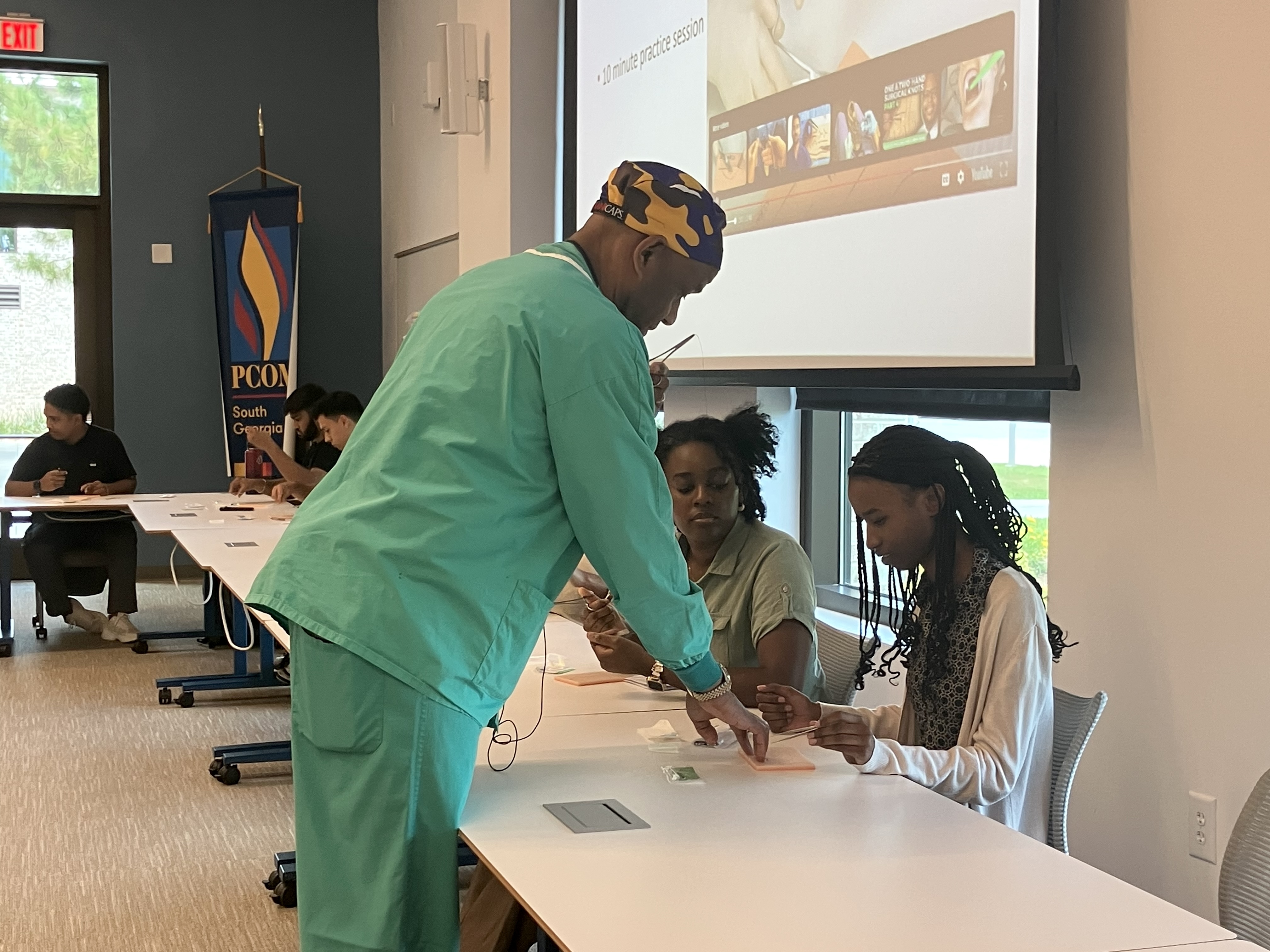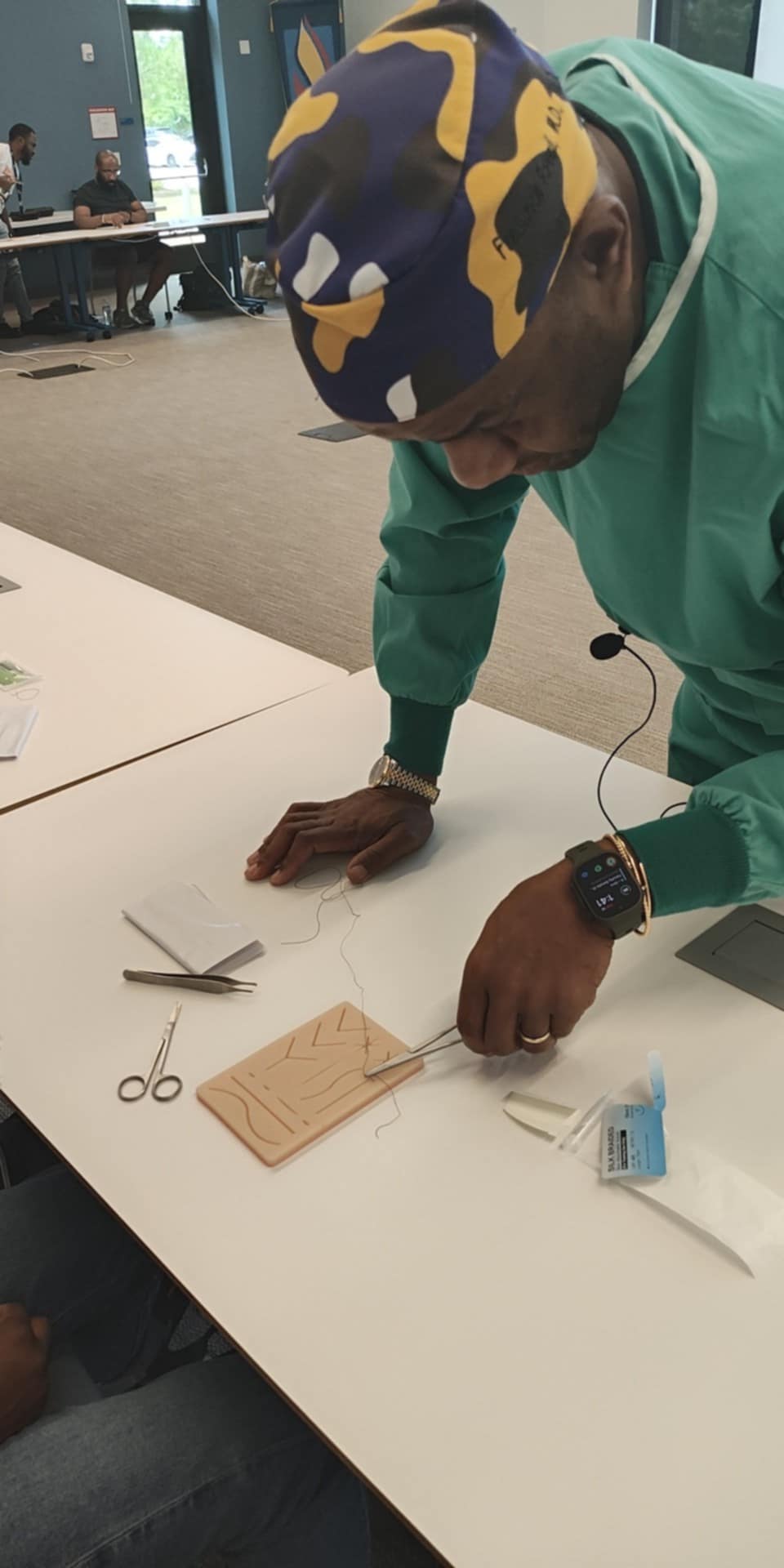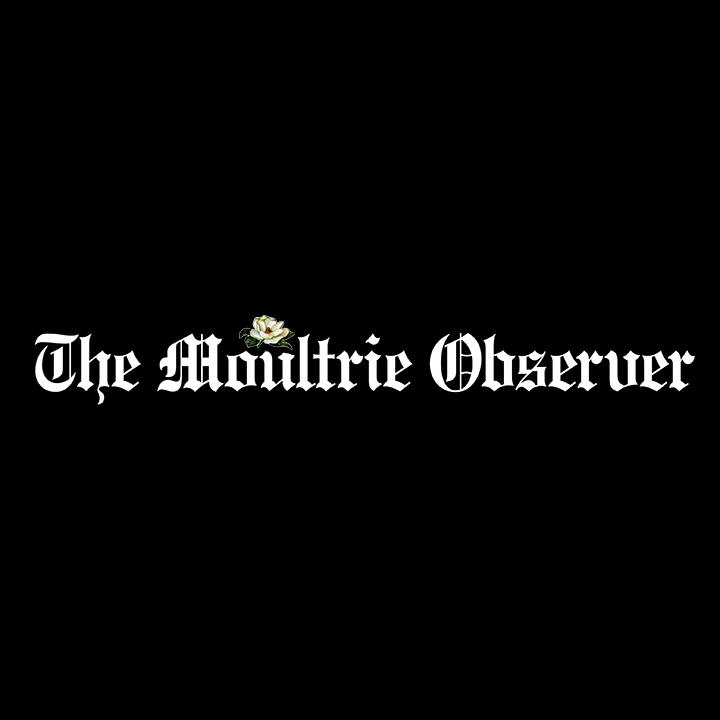PCOM holds FIRE program to prepare first-year medical students
Published 11:53 am Saturday, June 14, 2025



MOULTRIE — Likened to football training camp by students, PCOM’s two-week Fundamental Integration Required for Excellence program (FIRE) introduces students who are entering the Doctor of Osteopathic Medicine school to what medical school is like.
The FIRE program, in its fourth year, is optional for the first-year students who will start classes June 30. Healthcare professionals gave lectures on a variety of subjects including biochemistry, histology, an introduction to primary cares skills, professionalism and suturing. The students also had opportunities to tour local hospitals and to tour Moultrie to learn about the community.
Last Tuesday, Dr. Fredrick Powell, of the Department of Anesthesiology and Critical Care Medicine at Colquitt Regional Medical Center, gave a lecture on suturing. He also gave the future medical school students advice about the medical profession and medical school.
Trending
During the lecture, students used synthetic skin to practice a couple of simple stitches, giving them a hands-on experience.
Powell told the class that the main point of the lecture was for them to get an introduction to suturing. He gave them a scenario, via a PowerPoint, requiring them to assess a gunshot victim in the emergency room.
Then, he asked them to tell him what they needed to know about the victim. He asked them, at each stage of the trauma assessment, what they needed to do with the information. Students raised their hands with answers.
The scenario ended with the victim needing suturing after surgery. This led into the hands-on practice session with the suturing tools.
One of the things that he told them during his presentation of the gunshot scenario was, “What I can tell you is this. The way that it looks like on the movies, rarely looks that way.”
Powell encouraged the students to practice the simple stitches that he introduced to them during the lecture. He said, if they practice, they will have a feel for the instruments and technique before they go on their surgical rotations where the surgeons formally teach them suturing skills.
Trending
As the class was practicing suturing with the synthetic skin, Powell gave them some advice. He told them they needed to study like they had never studied before over the next two years.
“Don’t feel like you got to be the doctor for your family the first day you come into medical school,” he said, in reference to relatives asking them for medical advice after finding out they were in medical school.
The students asked him a variety of questions about his experience as a doctor and about medical school.
“I remember being in medical school where the, like, water was up to my nose. I felt the whole time like I was about to drown. It’s like drinking from a fire hose. That’s what medical school is like,” Powell said.
He told them they needed to grasp as much information as they can to prove to their professors that they have passed their tests.
“You’ll learn, even at PCOM, and it’s just a natural phenomenon, tests are going to be the most important thing to you,” he said.
He added that even when they were doing their clinicals with the hospital, those would become secondary to the tests.
“I’m a very realistic person. PCOM doesn’t pay me to tell y’all lies. I’m just being realistic with y’all and telling y’all everything that I feel,” Powell said. “This is a great place. Part of the thing about it is you’re gonna get a variety of clinicians.”
He also told them that, when he was in medical school, he didn’t talk to his clinicians. They didn’t make themselves available to the medical students, he said. Powell encouraged the students to talk to him when they saw him in the hospital and say, “Hello.” He said he would talk to them.
“It’s my responsibility to make you all great. It’s not your responsibility for you to come in here and already be great,” he said. “If you come here and you do everything that people tell you and you do what you need to do, you’ll be as successful as you want to be.”
One of the last pieces of advice that he gave the future PCOM students was that the harder they worked in their first and second year, the less they would have to work for the rest of their life.
“Because you’ll be doing something that you enjoy and when you enjoy it, it doesn’t seem like work,” Powell added.
After the lecture, the first-year medical students gave their impressions of the FIRE program and what it meant, personally.
Christen York of Tift County said, “I have a teenage daughter and being at PCOM has opened up a ton of opportunities for me as a non-traditional student.”
“The FIRE program has opened up just kind of a community building opportunity for us to get to know each other and to get to know the professors and also to get to know the community as a whole,” she said.
York said they’ve had opportunities to work at the Colquitt County Food Bank and they’ve had meals from local restaurants.
“And that’s opened up a ton of ideas for us for when we’re starving med students, working well into the night. So we know where to hit up when we’re starving,” she added smiling.
Reggie Dixon of Tallahassee, who just moved to Moultrie, said, “For me, I think it’s to be able to put your best foot forward the first week of medical school.”
He is also a non-traditional student, he said, as he’s been out of school for the past three years. Dixon wants to be ready for the quizzes and tests they take. He said he’s been able to talk to the older students about how they study and how not to waste time. Also what ways of studying work for them.
“So, I think it takes a huge stress off of us and just lets us feel integrated into the school. It’s kind of like sport camps for sports. It’s kind of like training camp for football. You just kind of get yourself ready before you start the season,” Dixon said. “Because once we jump in, it’s going to be non-stop. Everybody I’ve talked to, all the former students have said, you feel like it’s a fire hose. You’re always getting information.”
He said they just had a two-hour lecture, followed by another lecture, followed by lunch, followed by another lecture.
“So yeah, I understand it’s a lot of information, but I feel like I’m getting adjusted to it a little bit,” Dixon added.
“And you can tell the professors are really interested in seeing you succeed. Like they’re all here, and they don’t have to be here right now. And to know that their investment in me is just as much as my investment is in them. That’s reassuring,” said York.






